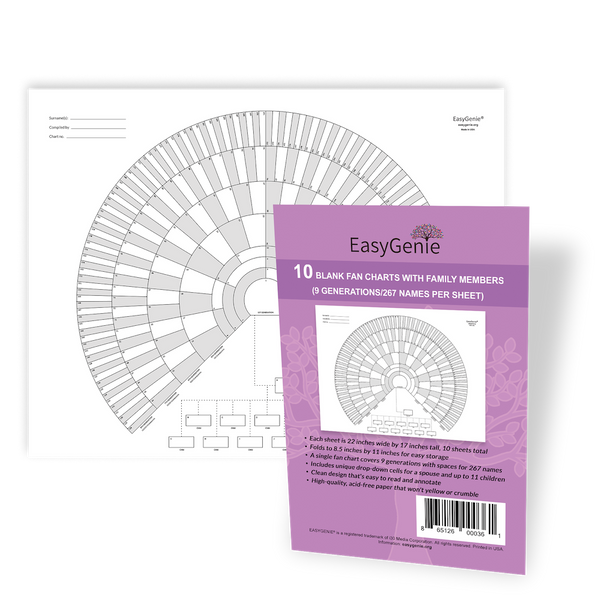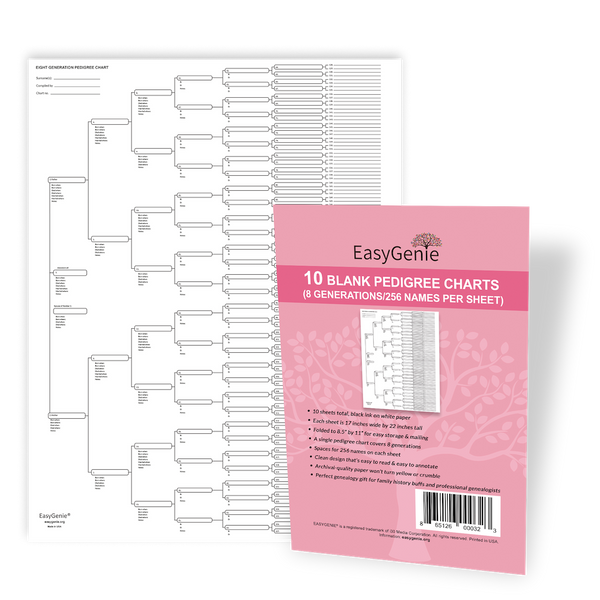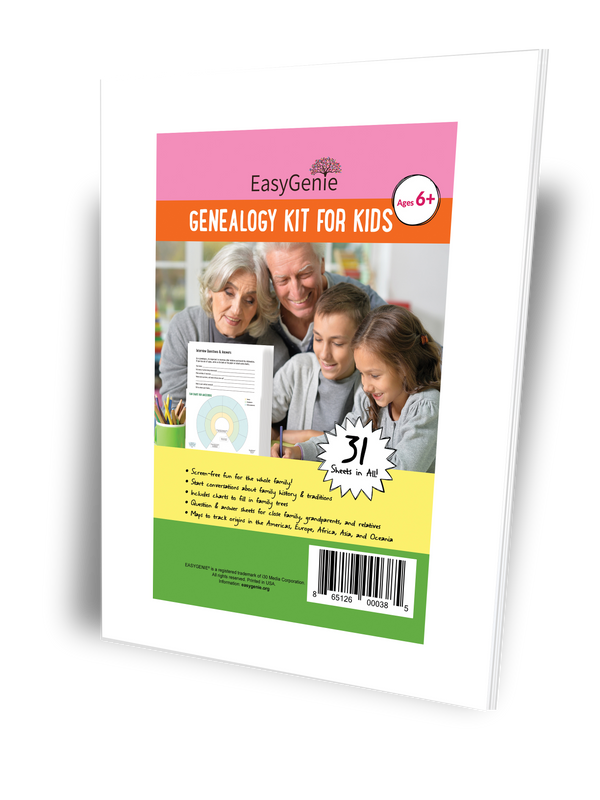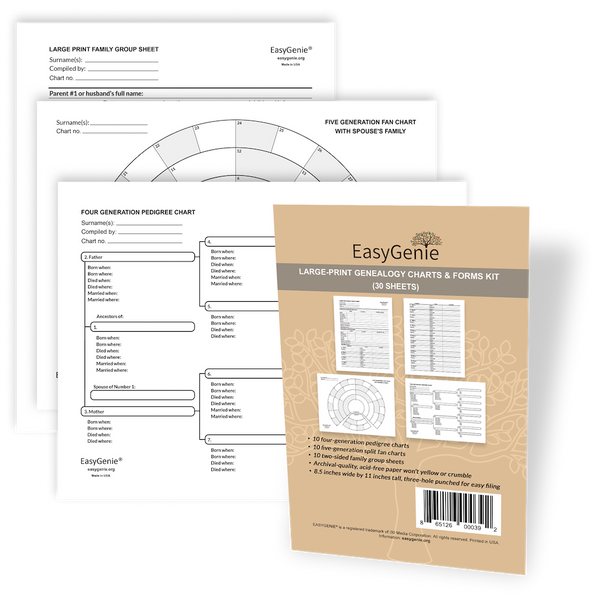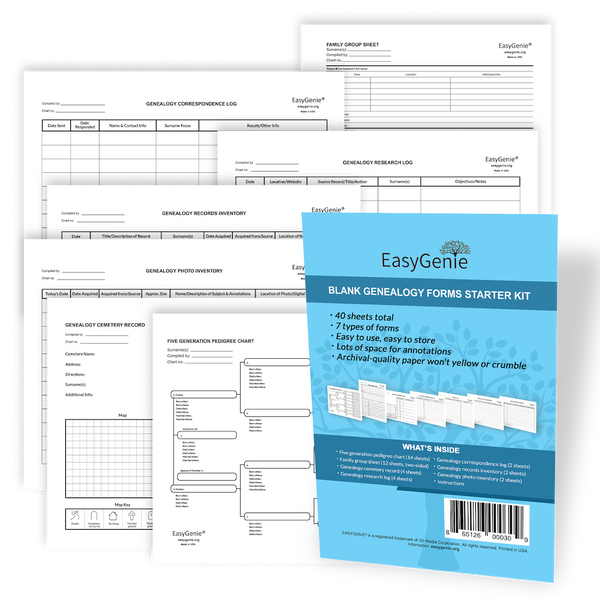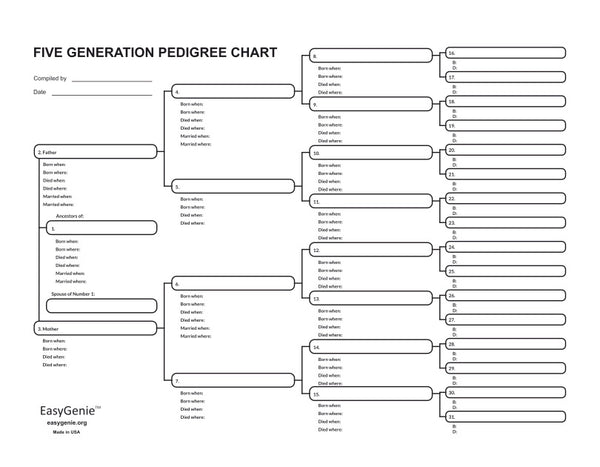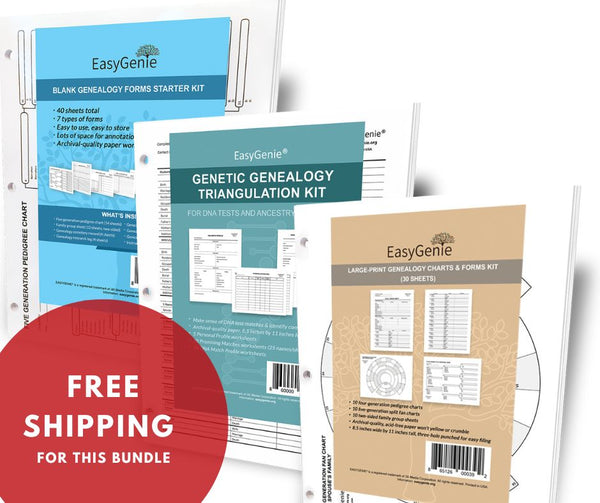
For adoptees tracing ancestry, brick walls are everywhere
Ian LamontI am helping a friend who was adopted trace her ancestry. It's rewarding, but it's also a challenge.
Despite the multitude of resources available to adoptees, former orphans, foundlings, and others with uncertain biological parentage, genealogy research for adoptees is on another plane of difficulty.
At EasyGenie, we created unique paper charts for adoptees that can help document biological and adoptive parents and their respective ancestors. But the research required to fill in the blanks is more daunting than any genealogy project I've ever worked on.
Consider the fact that many adoptees have brick walls that start with their biological parents. What were the full names of the mother and father? Even though most living adoptees were born in the 20th century, there may be legal impediments to accessing records ... or no records at all.
For adoptees who were born overseas, there are additional barriers to contend with. War or poverty may have split families, hindering the search for answers. Even if you do speak the local language, it may require a completely different set of skills to conduct research, depending on how public records and genealogy archives are organized in the country of origin. For instance, the practice of genealogy is quite different in China and Korea.
While DNA provides a potential avenue for discovery, there are no guarantees. For domestic adoptions, biological relatives identified through DNA may be reluctant to reveal information or make connections. If the adoptee was born abroad, it may be hard to connect with relatives if few people in the country of origin use DNA tests.
That said, DNA tests can at least provide rough ethnicity estimates. 23andme and Ancestry have greatly improved the quality of its origin maps. Instead of just showing a country of origin, the maps can even the show the county of origin:
In conclusion, adoptees are seeking answers about their people. Who were the biological parents? What conditions led to them giving them up for adoption? What important family stories can be unearthed? If these questions can be answered, the next step may be determining if there is any possibility of reconnecting, which has its own challenges, as author Dani Shapiro related in her fantastic memoir, Inheritance.
Genealogy resources for adoptees
The Adoptee Rights Law Center includes an overview of state laws governing access to birth certificates. The American Adoption Congress has information and links to domestic and international adoption resources and support services. The DNA Detectives Facebook Group aims to help people find biological family using genetic genealogy.

